7 start with G start with G

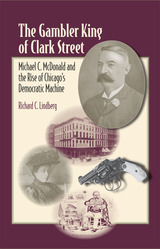
The Gambler King of Clark Street tells the story of a larger-than-life figure who fused Chicago’s criminal underworld with the city’s political and commercial spheres to create an urban machine built on graft, bribery, and intimidation. Lindberg vividly paints the life of the Democratic kingmaker against the wider backdrop of nineteenth-century Chicago crime and politics.
McDonald has long been cited in the published work of city historians, members of academia, and the press as the principal architect of a unified criminal enterprise that reached into the corridors of power in Chicago, Cook County, the state of Illinois, and ultimately the Oval Office. The Gambler King of Clark Street is both a major addition to Chicago’s historical literature and a revealing biography of a powerful and troubled man.
Illinois State Historical Society Scholarly Award, Certificate of Excellence, 2009
Society of Midland Authors Biography Award, 2009
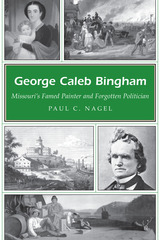
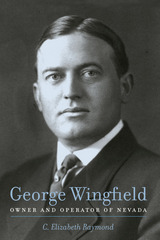

John Gurney reveals the hidden history of Winstanley and his movement. As part of the radical ferment which swept England at the time of the civil war, Winstanley led the Diggers in taking over land and running it as 'a common treasury for all' – provoking violent opposition from landowners. Gurney also guides us through Winstanley's writings, which are among the most remarkable prose writings of his age.
Gerrard Winstanley: The Digger's Life and Legacy is a must read for students of English history and all those seeking to re-claim the commons today.
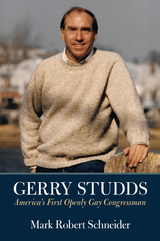
The defining moment of his career, however, came in 1983, when he was censured by the House for having had an affair with a page ten years previously. On the floor of Congress, Studds confessed to having behaved inappropriately and then courageously declared that he was a gay man—becoming the country's first openly gay member of Congress. Defying all expectations, Studds won reelection in a bruising campaign. For the rest of his career, he remained loyal to his constituents' concerns while also championing AIDS research and care, leading the effort in Congress to allow gays and lesbians to serve in the military, and opposing the Defense of Marriage Act. Once a deeply conflicted man, he ultimately found a balance between his public service and his private life, which included a happy, legally recognized marriage.
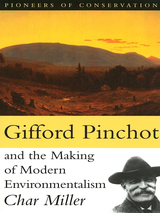
Gifford Pinchot and the Making of Modern Environmentalism, the first new biography in more than three decades, offers a fresh interpretation of the life and work of the famed conservationist and Progressive politician. In addition to considering Gifford Pinchot's role in the environmental movement, historian Char Miller sets forth an engaging description and analysis of the man -- his character, passions, and personality -- and the larger world through which he moved.
Char Miller begins by describing Pinchot's early years and the often overlooked influence of his family and their aspirations for him. He examines Gifford Pinchot's post-graduate education in France and his ensuing efforts in promoting the profession of forestry in the United States and in establishing and running the Forest Service. While Pinchot's twelve years as chief forester (1898-1910) are the ones most historians and biographers focus on, Char Miller also offers an extensive examination of Pinchot's post-federal career as head of The National Conservation Association and as two-term governor of Pennsylvania. In addition, he looks at Pinchot's marriage to feminist Cornelia Bryce and discusses her role in Pinchot's political radicalization throughout the 1920s and 1930s. An epilogue explores Gifford Pinchot's final years and writings.
Char Miller offers a provocative reconsideration of key events in Pinchot's life, including his relationship with friend and mentor John Muir and their famous disagreement over damming Hetch Hetchy Valley. The author brings together insights from cultural and social history and recently discovered primary sources to support a new interpretation of Pinchot -- whose activism not only helped define environmental politics in early twentieth century America but remains strikingly relevant today.
READERS
Browse our collection.
PUBLISHERS
See BiblioVault's publisher services.
STUDENT SERVICES
Files for college accessibility offices.
UChicago Accessibility Resources
home | accessibility | search | about | contact us
BiblioVault ® 2001 - 2024
The University of Chicago Press









